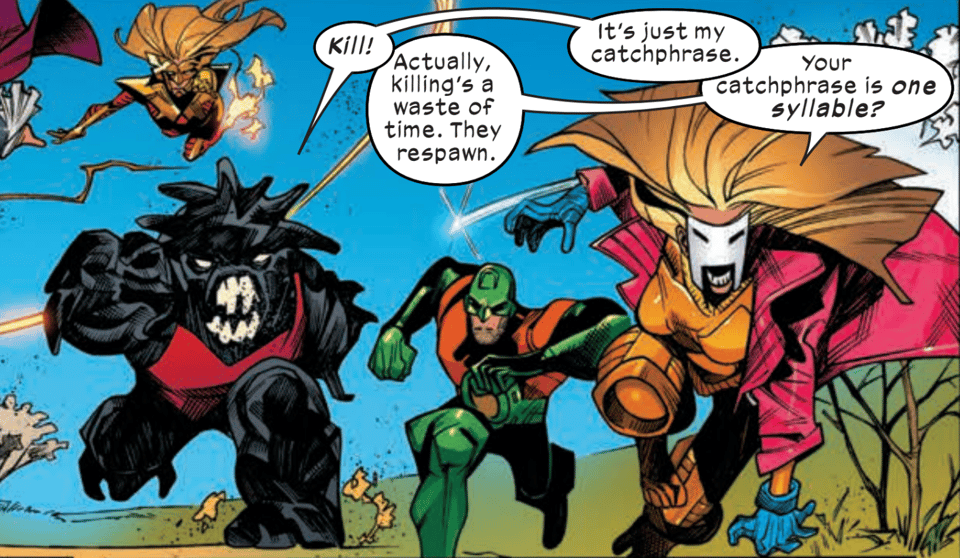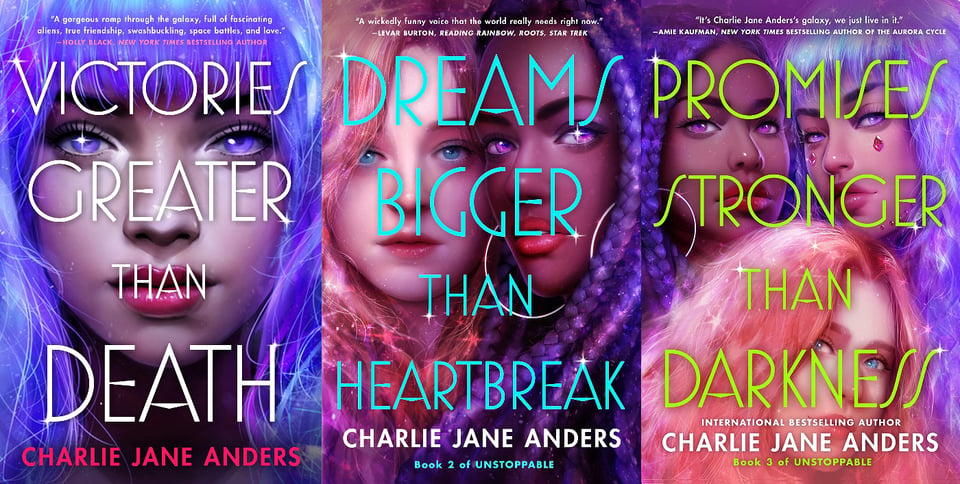The Vital Lesson Superhero Movies Should Learn From Deadpool

As you read this, The Flash is in theaters, and it's somewhat underperforming, with an opening weekend on par with Black Adam.
As I said on Mastodon a while back, I think this film's marketing over-emphasized cameos and easter eggs rather than letting us know that there's a cool story with characters you care about. (Yet again, Hollywood seems to believe a handful of vocal fans speak for the majority of audiences.) But there's just also the fact that this is a franchise-starter, that needs to introduce the character to everyone who didn't watch the CW show (or notice his supporting role in Justice League). For example, Into the Spider-Verse did pretty well at the box office, setting up Across the Spider-Verse to be a monster hit.
(Full disclosure: I haven't seen The Flash, because I've been at a convention and because I'm still not going to theaters except in rare cases, due to covid fears.)
To my mind, the real problem with The Flash is its reported $200 million budget, which some sources are saying might actually be higher than that. And because a movie needs to make a few times its production budget to break even at the box office (depending on marketing spend and other factors), every dollar you add to the budget raises the bar for a successful box office by a factor of three or four. A lot of movies are costing in the $200 million range lately, which is partly driven by COVID and other factors, but also by the need to have huge VFX sequences.
Which is why I always think about Deadpool, the ginormous hit film that cost a very parsimonious $58 million to make.
As star Ryan Reynolds said back in 2015 to MTV News (pouring one out):
We don’t have the kind of money that most superhero movies do, but that’s great, actually. Necessity is the mother of invention, and that’s why we get to make the movie we want to make.
In fact, the makers of Deadpool had to slash $7 million from their budget at the last minute, they told io9 at the time. This forced them to cut some action scenes, combine a few characters into one, and generally streamline. This meant fewer superhero cameos (which are usually the best time to go pee during a film, because they don't move the story forward.) The film-makers kept asking to include high-profile characters like Taskmaster, or major X-Men characters, but the budget wouldn't allow it.
As Ryan Reynolds explained at the time:
We went through such hell developing the script and which X-Men we could keep and which we couldn’t and it just turned into a nightmare. The studio would just say, ‘too expensive, too expensive, too expensive’ to everyone. So finally we were like well, “What about Negasonic Teenage Warhead” and they said, “Negasonic, what?”
I would way, way rather have Negasonic Teenage Warhead in that movie than a dozen more well-known Marvel characters. Also, as this article explains, a smaller budget forced Deadpool to focus more on Wade's romance and less on endless action sequences. They also included more female characters (probably, sigh, because actresses are still cheaper than actors.)
Also, budget cuts led to the gag where Deadpool forgets all his guns in the taxi, causing him to have to attack the bad guys without an entire arsenal. Which is one of the most fun parts of the movie.
In the end, Deadpool made so much money that it still would have been a hit with a higher budget. But the smaller budget forced the film-makers to be creative and emphasize story over digital cheez whiz.
Reynolds has been banging this drum ever since. Last year, Reynolds told Forbes:
Deadpool taught me that necessity is the mother of invention. Deadpool, the franchise, never had the kind of budgets and finances to work with that some of the larger comic book properties did. Two of the greatest adversaries to creativity is too much time and too much money. I learned the value of character over spectacle through Deadpool.
Chris Pine has been saying a similar thing about Star Trek movies lately: a smaller budget could mean a more thoughtful, character-focused story. And it's pretty clear at this point that a Trek movie will never make Star Wars money, no matter what you do. So it's better not to try.
I love creative action sequences. The freeway sequence in Matrix Reloaded is utterly brilliant. I adore John Wick. I was a huge fan of the fight scenes in Man of Steel. As I've been writing New Mutants: Lethal Legion, I've put a ton of thought into making every action scene feel fresh and different and actually character-focused. (Issue four of New Mutants: Lethal Legion, out Wednesday, has an action scene with a musical accompaniment that will shock and astonish you.) As John Rogers, Tobias Buckell and Fonda Lee have explained better than I can, a good action scene moves the story forward and changes things for the characters in some meaningful way.
But if superhero films need to have fewer obligatory action scenes, that are delivered with all the joy of a lunch lady slopping a perfect sphere of tuna salad onto your metal tray, that's not a bad thing at all.
And if you have a choice between having Taskmaster or Negasonic Teenage Warhead in your movie, always choose Negasonic Teenage Warhead.
Something I Love this Week
I was a tad nervous about the final season of Never Have I Ever, because it felt as if maybe the show had resolved a lot of its big storylines already. The saga of Devi Vishwakumar was originally structured as a moderately horny teen comedy where Devi had a sort of love triangle with Ben and Paxton, which seemed to have maybe run its course by the end of season three. Was the fourth season going to be just a sort of glorified victory lap? But no!
In fact, season four of Never Have I Ever is one of the best seasons of television I've seen in ages, and an utter delight. It cements Never Have I Ever as one of the best TV shows of the past decade, up there with (off the top of my head) We Are Lady Parts, Extraordinary, Rutherford Falls, Legends of Tomorrow, Severance and Reservation Dogs. Every single character takes on more layers and nuance in season four, while also remaining outrageously funny. And Devi, in particular, actually gets to grow up without having a personality transplant. She's still kind of a self-centered jerk, but she's learning to do better. Seeing a character arc executed so well just gives me hope for the future of humanity. For real. If you haven't watched Never Have I Ever yet, all four seasons are wonderful and it has a fantastic ending.
My Stuff
Here's where I shill my stuff! This newsletter is free, but if you want to support me financially, I will not complain!

I think I already mentioned that New Mutants: Lethal Legion issue four is out on Wednesday. I bet you can still get the first few issues, too. This issue features:
an opening chase/fight sequence in a cherry orchard. Petals flying everywhere! See above, re: trying to make fight scenes fun and distinctive.
relationship advice from the very last character you expected to have relationship advice.
Moonstone, who you might remember from Thunderbolts, does TWO extremely shocking things that might change how you think about her.
Escapade and Morgan have a real serious talk about their relationship.
WAY too many pee jokes.
I had more fun that probably ought to be allowed with this one. Please support fun!
ICYMI my entire young adult space fantasy trilogy is complete now! You can get the whole Unstoppable trilogy, and the first two books are in paperback. I feel like these books tell a coherent story about queer chosen family, people searching for their own identities, and fighting fascism without losing yourself. But I wanna hear what you think!
